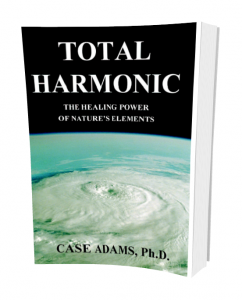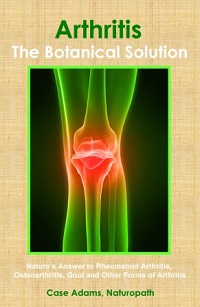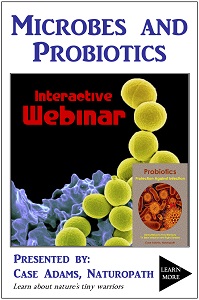Awe, Beauty and Wonder Reduce Inflammation

Napali Coast.Awe reduces inflammation.
Picture it: You are taking a hike in a beautiful forested trail and you come to the top of a ridge. Suddenly you find yourself standing on a peak that overlooks a vast expanse of canyons and ocean. You are in awe at the beauty. You wonder just how such a thing of beauty came about.
Okay, you know this is healthy. You are breathing fresh air and you are taking a hike in nature. But just the feeling of awe that you have provokes something else: Something healthy within the body.
Such an event, according to new research, significantly reduces inflammation and increases the body’s well-being. According to several recent research studies.

In this article
Inflammation and feelings of awe
Researchers from the University of California at Berkeley conducted a series of two studies. In each, more than 200 adults reported experiences of emotions. These included awe, joy, compassion, contentment, love, pride and others. The researchers analyzed samples of the volunteers’ oral mucosal membranes – from their gums and cheek tissues.
The researchers tested the mucosal membranes for cytokines. More specifically, they measured levels of interleukin-6 (IL-6). This is an inflammation marker. IL-6 is a pro-inflammation cytokine. This means that lower levels of IL-6 indicate lower inflammation, and higher levels of IL-6 indicate increased inflammation.
The researchers found that out of all the other feelings and emotional states, during times where they felt awe, wonder and beauty, the subjects also had the lowest levels of IL-6 cytokines.
Did the feelings of awe and wonder reduce their inflammation or reduce the potential causes of inflammation? Not sure.

Awesome beauty in my neighborhood
Inflammation linked to many diseases
The list is gigantic. Heart disease, Alzheimer’s, arthritis, gut diseases, liver diseases, kidney diseases, diabetes – the list goes on and on. All these and more are linked with inflammation. Inflammation means the body is fighting something, but chronic inflammation can provoke cell and tissue damage.
The immune system uses cytokines such as IL-6 to identify regions that require repair. IL-6 cytokines also signal the beginning of the process and sometimes the end – depending upon the situation.
Yes, these cytokines are smart, just as our immune system is smart.
When these cytokines are notably absent, it indicates the body is more healthy and stronger.
Dr. Jennifer Stellar from the University of Toronto, the lead author of the study, discussed this aspect:
“Our findings demonstrate that positive emotions are associated with the markers of good health.
Awe is associated with curiosity and a desire to explore, suggesting antithetical behavioral responses to those found during inflammation, where individuals typically withdraw from others in their environment.”

Not the first study to connect awe with well-being
Another study – this from Stanford University and the University of Minnesota – also found that the feelings of awe are healthy. The researchers conducted three different experiments. These determined that awe-inspiring events increase our well-being. They also found that feelings of awe and wonder influence decision-making and expand our perception of time.
Another study – from the University of California at Irvine – studied 1,500 people from around the U.S. After their four experiments, they found that a sense of awe and wonder increased pro-social behaviors such as acceptance and friendship.
This last finding correlates well with the reduction of IL-6 pro-inflammatory cytokines. Why? Because IL-6 cytokines have also been linked with depression.

What this means
The sense of awe comes from feeling wonder in the presence of something that transcends our understanding. Something that seems vast and beyond our mundane experiences.
Exploring ways to become awed by beauty and wonderment can easily be added to our lives. Beauty is all around us. Being awed at the works of the Creator can be done from any circumstance. It doesn’t require hiking through the woods – although taking hikes through the woods are therapeutic in other ways.
In other words, one can be awed by the simplest of things. Personally, I am awed by the findings of this research: They illustrate for me yet another connection between the spiritual self and the physical body.
But don’t trust my word for it. Go out and explore the boundaries of life in whatever field or environment provides awe, beauty and wonder for you.
REFERENCES:
Stellar JE, John-Henderson N, Anderson CL, Gordon AM, McNeil GD, Keltner D. Positive affect and markers of inflammation: discrete positive emotions predict lower levels of inflammatory cytokines. Emotion. 2015 Apr;15(2):129-33. doi: 10.1037/emo0000033.
Anwar Y. Add nature, art and religion to life’s best anti-inflammatories. Berkeley News. Feb. 2, 2015.
Rudd M, Vohs KD, Aaker J. Awe expands people’s perception of time, alters decision making, and enhances well-being. Psychol Sci. 2012 Oct 1;23(10):1130-6. doi: 10.1177/0956797612438731.
Piff PK, Dietze P, Feinberg M, Stancato DM, Keltner D. Awe, the small self, and prosocial behavior. J Pers Soc Psychol. 2015 Jun;108(6):883-99. doi: 10.1037/pspi0000018.
Lespérance F, Frasure-Smith N, Théroux P, Irwin M. The association between major depression and levels of soluble intercellular adhesion molecule 1, interleukin-6, and C-reactive protein in patients with recent acute coronary syndromes. Am J Psychiatry. 2004 Feb;161(2):271-7.


















